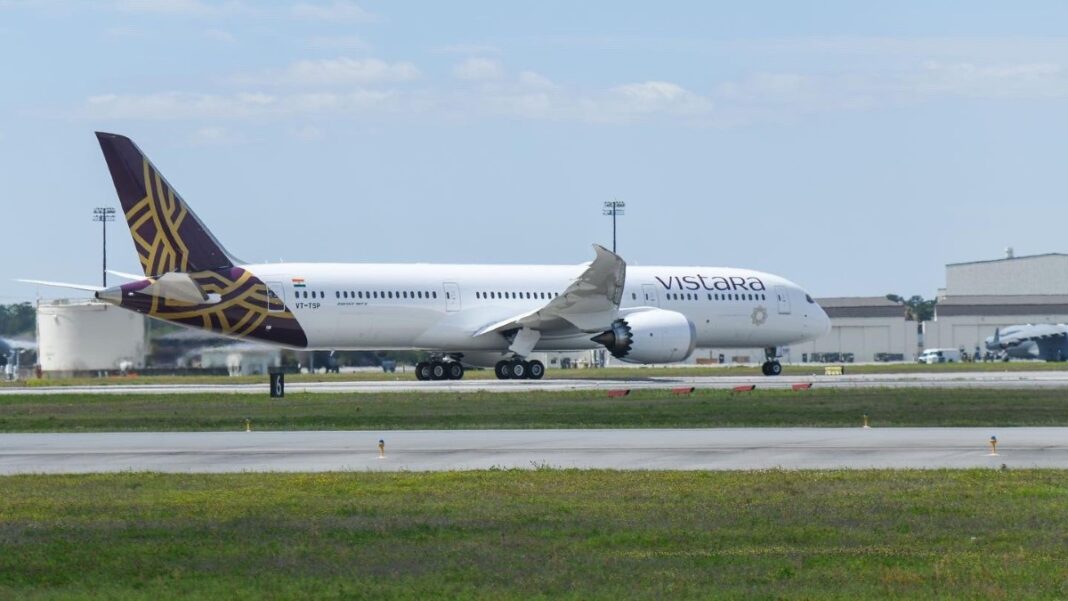INDIA: Indian airline Vistara has become the first carrier in the country to operate a long-haul flight on a wide-body aircraft using sustainable aviation fuel (SAF).
The Dreamliner was operated on a ferry flight without passengers, using a blend of 30% SAF and 70% conventional jet fuel on a route from Charleston, US, to Delhi.
This initiative allowed Vistara to reduce carbon dioxide emissions by about 1.5 lakh pounds over the fuel’s life cycle.
While other Indian airlines like IndiGo and SpiceJet have used SAF on smaller planes, the main issue remains the sustainable availability of SAF in the required quantities.
Vistara, which will soon merge with Air India, now has four Dreamliners in its fleet. The airline’s CEO, Vinod Kannan, described the SAF flight as an important milestone in its commitment towards achieving carbon neutrality.
Vistara has invested in modern and advanced new aircraft with fuel-efficient engines and remains committed to reducing carbon emissions across all areas of its operations.
The Boeing 787-9 Dreamliner used in the Vistara SAF flight features GE Aerospace’s newest GEnx-powered engine, which is up to 15% more fuel-efficient than its predecessor.
The improved fuel-efficient engine combined with SAF significantly reduces fuel consumption and carbon emissions.
GE Aerospace country head Vikram Rai stated that the GEnx engine can operate on approved SAF blends, a critical factor in achieving the aviation industry’s goal of becoming net-zero by 2050.
Boeing India President Salil Gupte congratulated Vistara on this achievement and said it is a significant milestone in the Indian aviation industry’s journey towards decarbonization.
He added that Boeing remains committed to promoting the use of SAF in the Indian aviation industry and globally supporting the collective goal of achieving a sustainable future for air travel.
SAF is a cleaner and more sustainable alternative to conventional jet fuel and has the potential to lower carbon emissions by up to 80% over the fuel’s life cycle, depending on the feedstock.
Vistara is working with the Tata Aviation Sustainability Working Group and other aviation arms of the Tata Group to reduce carbon emissions.
Tata Airlines recently signed a Memorandum of Understanding (MoU) with the Council of Scientific and Industrial Research—Indian Institute of Petroleum to collaborate on the research, development, and deployment of SAFs.
The airline is also working through the “Carbon Offsetting and Reduction Scheme for International Aviation” (CORSIA) to lower CO2 emissions for international flights and curb the airline industry’s impact on climate change.
The use of SAF on this Vistara flight is a significant step towards decarbonization in the Indian aviation industry.
Climate workers hope that the initiative will encourage greater adoption of sustainable technologies by the industry and lead to more opportunities to use SAF on long-haul flights.
Also Read: Nepal Plane Crash: The Deadly Crash Leaves No Survivors



